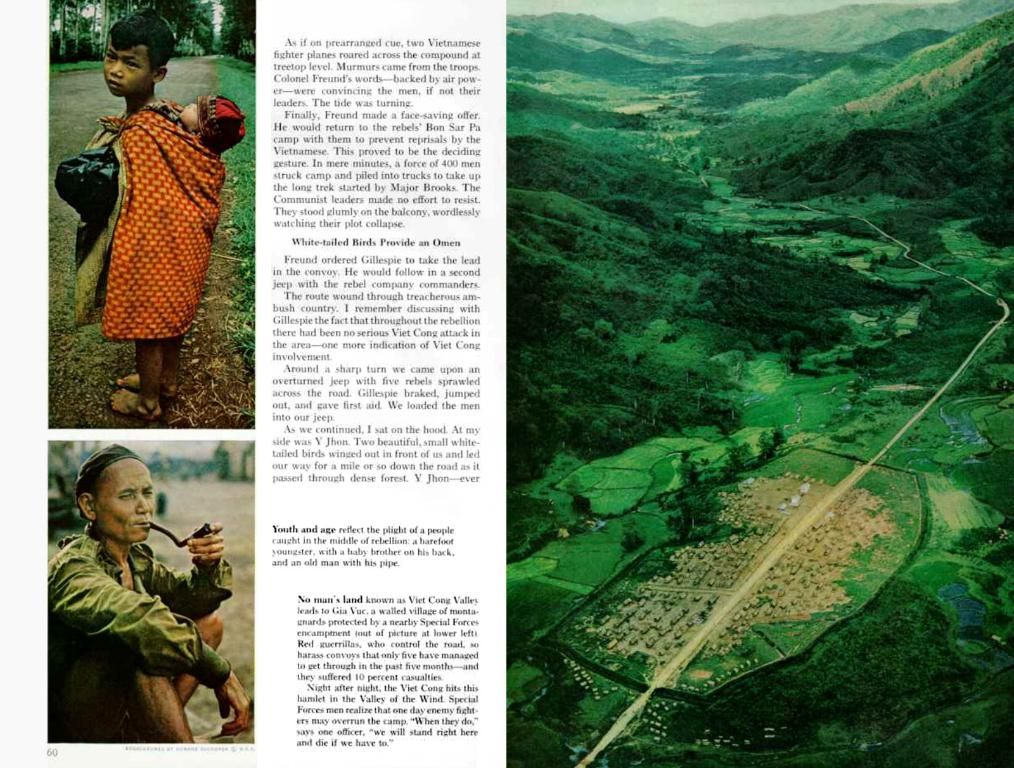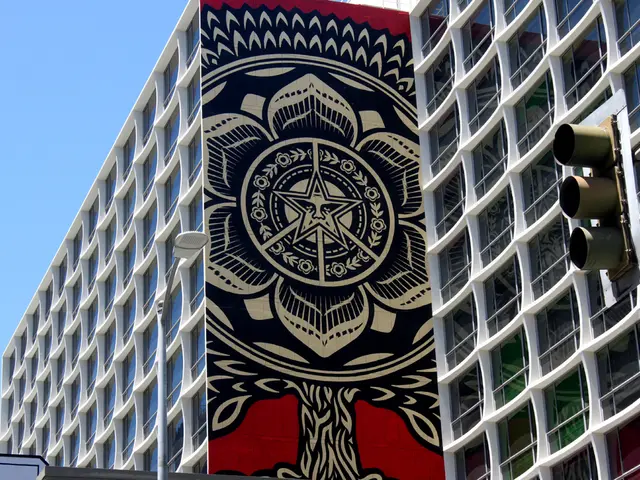Unveiling Nigeria's Petroleum Subsidy Scam: Bawa Exposes Shocking Theft of Billions
Ex-EFCC Chair Reveals Alleged Theft of Billions in Fuel Subsidy Era
In a bold move, former Economic and Financial Crimes Commission (EFCC) chairman, Abdulrasheed Bawa, has revealed the staggering extent of corruption within Nigeria's fuel subsidy regime. Our source reports this revelation in Bawa's book, "The Shadow of Loot & Losses: Uncovering Nigeria's Petroleum Subsidy Fraud."
Bawa, who led the EFCC from 2021 to 2023 under former president Muhammadu Buhari, claims that billions of naira were swindled through ghost imports, over-invoicing, forged documentation, and collusion between corrupt officials and private firms.
In a bombshell statement on Wednesday, Bawa shed light on how single fuel shipments were used to obtain multiple subsidy payments, while subsidized fuel was diverted to black markets or smuggled out of the country.
The book details how companies routinely claimed subsidies for fuel never imported, inflated volumes to receive excess payouts, and manipulated bills of lading to exploit international price fluctuations. The manipulation of shipping documents allowed them to claim higher subsidies.
The book serves as both a damning chronicle of fraud and a call to action for reform, transparency, and accountability in Nigeria's oil sector. "Companies routinely claimed subsidies for fuel never imported or inflated volumes to receive excessive payouts. These crimes were enabled by forged documentation, regulatory failure, and entrenched corruption across government and business,” Bawa is quoted as saying.
In the book, published by CableBooks, Bawa also exposes multiple fraudulent strategies such as:
- Ghost Importing and Over-Invoicing: Companies submitted claims for fuel that was never imported or inflated shipment volumes to receive excessive subsidy payouts.
- Manipulation of Bills of Lading: By altering shipping documents, fraudsters exploited international price fluctuations to claim higher subsidies.
- Round-Tripping and Double Claims: Single shipments were often used to obtain multiple subsidy payments.
- Diversion and Smuggling: Subsidized fuel was frequently diverted to black markets or smuggled out of Nigeria for profit.
These practices, Bawa explains, were enabled by forged documents, weak regulatory oversight, and systemic collusion between corrupt government officials and private sector actors.
"The Shadow of Loot & Losses is not just a chronicle of fraud, it is a call to action - a demand for transparency, accountability, and reform in Nigeria's public finance management, especially in the oil sector," Bawa adds.
You May Find Interesting:
- Photos: Former EFCC Chairman, Bawa Visits Buhari In London
- Ex-EFCC Boss, Bawa Loses Mother
- List Of Influential Nigerians That Have Been Jailed Under Tinubu's Administration
- Ex-CBN Deputy Governor Knocks DSS For Arresting, Detaining Former EFCC Boss, Bawa
- Videos: Nigerians React As Bawa Storms Home Town With Convoy After Release From Detention
- DSS Confirms Release Of Former EFCC Boss, Bawa
- Abdulrasheed Bawa, the former Economic and Financial Crimes Commission (EFCC) chairman, claimed billions of naira were stolen through fraudulent practices in Nigeria's fuel subsidy regime during his tenure under President Muhammadu Buhari.
- Bawa's book, "The Shadow of Loot & Losses: Uncovering Nigeria's Petroleum Subsidy Fraud," reveals the extent of corruption within the oil sector, including ghost imports, over-invoicing, and collusion between corrupt officials and private firms.
- In the book, Bawa highlights various fraudulent strategies such as ghost importing and over-invoicing, manipulation of bills of lading, round-tripping and double claims, and diversion and smuggling of subsidized fuel.
- The manipulation of shipping documents and regulatory failure allowed companies to claim higher subsidies, while single fuel shipments were often used to obtain multiple subsidy payments.
- The practices described by Bawa were enabled by forged documents, weak regulatory oversight, and systemic collusion between corrupt government officials and private sector actors.
- Bawa's book serves as a call to action for transparency, accountability, and reform in Nigeria's public finance management, especially in the oil sector.
- Other topics of interest on our website include former EFCC chairman Bawa's visit to President Buhari in London, Bawa's mother's passing, a list of influential Nigerians jailed under Tinubu's administration, a response from a former CBN deputy governor regarding Bawa's arrest and detention, reactions of Nigerians as Bawa returned home after release from detention, and confirmation of Bawa's release from the DSS.








